Nick Travers's Blog, page 7
July 18, 2016
Brexit Drama Ends in Bloodbath
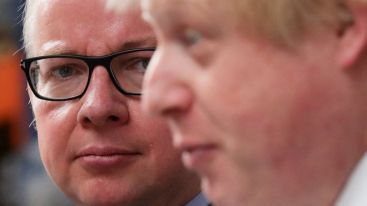 Machiavellian betrayal, Shakespearian tragedy, dark mystery. The last few weeks in British politics has been an incredible roller coaster ride for everyone. There is much to learn here about the nature of story, the nature of perceptions, even the nature of life.
Machiavellian betrayal, Shakespearian tragedy, dark mystery. The last few weeks in British politics has been an incredible roller coaster ride for everyone. There is much to learn here about the nature of story, the nature of perceptions, even the nature of life.
This article by Mark Mardell succinctly sums up what probably happened.
There is also the odd, but in my opinion revealing, story of Boris turning up for a meeting with his main assumed rival, only for her not to show up: why would he even agree to meet with her unless he too was planning a betrayal?
Beyond that, are rumors of George Osborne, the chancellor, manipulating Gove behind the scenes, no doubt in an attempt to save his own political career.
Let’s get a few of the simpler story issues out of the way:
None of the actors in this saga believes they are villains – they all see themselves as the heroes. It is us, the observers, who immediately allocate to them the roles of victim, hero, and villain, but we may have allocated wrongly (more about this later).
Everyone, with maybe the exception of Boris (more about this later), did what they did because they believed it was right for, themselves, others, and their country. No one acted the way they did because they are inherently evil – they all had, or believed they had, very good reasons for taking the actions they did.
When the stakes are high, and real power is the goal, ambitious people will reveal their true nature. This is the essence of a good plot: make sure the goal is large enough, make sure your characters desire for the goal is absolute, put them under real pressure, and make the story about your character’s actions driven by motives and/or beliefs. What we really want to know is, why do they do what they do?
Now to the more complicated story stuff:
Nobody could predict how this drama would play out. The characters involved made minute by minute decisions, without knowing the full consequences, or how others would react, and without necessarily knowing what the others were doing at the same time. And yet we, the observers, describe what has happened as Machiavellian or Shakespearean. To make sense of this drama, we immediately look for story comparisons.
Why? Because we can’t help it. Humans are inherently programmed’t to understand the world through the medium of story. It’s our way of making sense of the world around us. We automatically look for a story that fits the presumed scenario and if the facts turn out to be incorrect, then we just change the story until we find one that fits. We want there to be a villain, we want a hero, and we want a victim.
What does this mean for authors? Every time we create an original story, we are potentially creating a new frame of reference to help individuals understand the world.
So who is the real villain of the piece? Strange as it may seem, I believe Boris is the real villain. He is the one who joined the Brexit Out campaign for his own political ends. He never really thought it had a chance of winning , which, he reasoned, meant it didn’t matter if he threw his weight behind the campaign: he could increase his political influence within his party, as the valiant loser (a peculiarly English characteristic) without doing any real harm to the country. As Mark Mardell says in his article, “Winning is where it all went wrong for Boris.”
So who stabbed who in the back? I believe Gove, realising Boris had faked his enthusiasm for Brexit and had little appetite for following through, did the only thing he could for a cause he felt passionately about: sidestep Boris and put himself forward.
And Boris’ revenge? I believe it was enacted immediately. By not standing for the leadership himself, Boris successfully cast Gove as the back stabbing villain, with himself as the victim, and ensured Gove’s leadership bid would end in defeat.
Curiously, even though I believe Boris is the real villain, it is still very difficult to view Gove as anything other than ‘the politest back-stabbing villain in history’, because Boris has spun the story so brilliantly. As political thrillers go, this is a plot of genius – a description sometimes used of Boris himself.
And just where did that phrase, which will haunt Gove for the rest of his life, “The politest back-stabbing villain in history,” which the media has jumped on so readily, originate? If it were my plot, it would have only one subtle source.
In his article, Mark Mardell predicts a final act in the drama, where Boris enacts his revenge on Gove. But this was not to be.
Step into the drama a side actor, who has to this point been expertly navigating the choppy and treacherous political storms with cunning and caution.
The last act of this whole drama belongs not to Johnson or Gove, but to the new British Prime Minister, Teresa May, who now steps into center stage. During her first two days in office, she strikes efficiently and ruthlessly, to carry out an audacious political coupe of historic proportions.
From a political perspective, it’s a bloodbath.
The new prime Minister systematically dismantles the government of the previous six years. If the old Chancellor, George Osborne, was behind the Gove/Johnson betrayals, in an attempt to retain political influence, he is now the main political casualty. Not only has he lost his own job, but his entire political power base, and that of the previous Prime Minister, David Cameron, has been shredded. This includes Gove, who is now thrown on the political scrap heap.
Rumors or not, the new Prime Minister has no intention of letting anyone manipulate her – who would have thought she had it in her. She has created a very Thatcherite or Churchillian government, with, to put it more politely than Churchill, all the potential mavericks inside looking out, rather than outside looking in – a cabinet of ‘nay sayers’ as Clinton would call it.
Johnson has landed a top job as Foreign Office Minster. He did indeed goe his revenge on Gove , but ironically not through his own scheming, but as a weapon wielded by an even greater power-player than himself.
What a story!

July 12, 2016
Death Defying Leap
 The yellow dot in this photo is me abseiling 360 feet down the Spinnaker Tower in Portsmouth UK. I don’t like heights, but this was terrifying. I was shaking for ages after the climb.
The yellow dot in this photo is me abseiling 360 feet down the Spinnaker Tower in Portsmouth UK. I don’t like heights, but this was terrifying. I was shaking for ages after the climb.
Why would I put myself through this torture? Well, all in a good cause. I was raising money for a small but effective charity called Revelation Life.
I was so impressed that this charity appear to not just be doing all the right things in the right way, but in a way that spreads viraly through the slums of Nairobi.
To my simple mind, helping someone in such a way that others want to copy it, has got to be worth supporting.
If you would like to help increase the amount raised by this abseil, you can do so at my MyDonate page.

This is your one and only chance to give because I am definitely NOT doing another abseil.
Yep, that is me near the bottom of the tower, kicking my legs wildly, because I could no longer reach the wall

June 1, 2016
Why do I need a Book Marketing Plan?
Here’s the short answer: focus.
Focus on the Book Marketing Plan
Technology has opened up many new opportunities for indie authors to market books and continues to do so, but it’s a chaotic world and a book marketing plan really helps you retain focus. If you try to follow all the latest technologies or let yourself be swept up in one current trend after another, without a plan, you will end up spreading yourself too thinly, like a scatter-gun.
This may be fine for those with an existing platform (celebrity/notoriety/social media presence) or large amounts of cash to splash on promotion; they make a quick killing and move on. But for the rest of us average Joes, that produce averagely good novels and seek only to make an average living from our work, something more sustained is required. And that requires a book marketing plan; actually, you may need more than one, but more about that later.
If you self-publish your novels, then you are not just an Indie author, you are also an entrepreneur. Your writing is a business that you run for your own benefit. I am not a marketer, but as someone with experience in business strategy, I can tell you that businesses without plans are businesses that fail.
Sustainable book marketing plans

Sustainability, weight, gravity, presence, platform, consistency, popularity, expertise—whatever you call It, you need it to make you book visible, and if you don’t have It already then it has to be built, by you.
Let’s be realistic: even with the best and most widely promoted book launch, your novel will (unless you have written a masterpiece, or caught the public imagination) quickly sink in the vast mire of social media activity.
If you are lucky with your launch, you will have covered the production costs of the novel and not be out of pocket on the promotion. If you are really lucky, you may have made enough profit to cover the production cost of the next novel. A few people will have made enough to fund their lifestyle until the next launch, provided they are not too overindulgent.
For most authors, the investment of a launch will have resulted in a financial loss. Such is the life of a jobbing indie novelist—come on, you didn’t think telling stories for a living be easy, did you?
The Long Tail book marketing plan
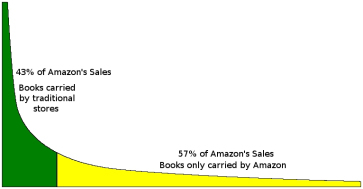
The real benefits of self-publishing as an indie author is in the long-tail. I have written about the long-tail in other articles so I will not repeat myself here. The long-tail requires time: years. It requires effort and consistency. It requires a back catalogue: lots more novels.
If you aren’t able or willing to put in a sustained effort over years to build your brand, stick to the day job and enjoy you writing as a hobby. (Wait, did you just say ‘brand’? I did, more about that later). There is absolutely nothing wrong with writing for a hobby—it’s a very rewarding hobby, for which your fans will love you, but don’t expect to make a sustainable living.
Build a Book Marketing Plan
To build presence on social media, you need a plan. Again I have written about this elsewhere.
There is loads and loads of great advice on the internet about how to form your own book marketing plan. As whatever if might recommend will almost certainly be out of date shortly after I post this blog, I shall leave you to explore content of a book marketing plan for yourself. The important point I’m making her is that you really do need a plan.
Some book marketing plans are better than others. Some will be more suited to your character, lifestyle, subject matter etc. Some will require a lot more work than others. The important thing is to come up with a book marketing plan that you are comfortable with and that you can sustain over years.
Something is better than nothing
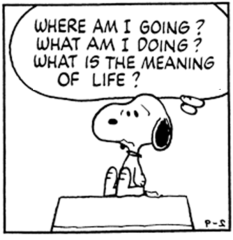
To some degree it doesn’t even matter what the plan is, as long as you have one. My time in business taught me a couple of things about business plans and therefore book marketing plans:
It you don’t have a target or an aim, how can you measure how well you are doing?
A book marketing plan helps you set short term goals and actions.
A bad book marketing plan can be improved once you start measuring your targets and aims.
Failure or inefficiency can be tracked if you have a book marketing plan to analyse.
Changing direction by adapting an existing book marketing plan is a whole lot easier that starting again.
A good book marketing plan can be improved by doing more of what is working well.
If you try something new, and you should be constantly experimenting, a book marketing plan will ensure you don’t take our eye off the ball and drop what is already working.
Change is inevitable, so even the best book marketing plan need monitoring, revision and updating. What works today may not work tomorrow, or some new opportunity may come over the horizon.
A book marketing plan give you the illusion of control, at least over your small niche, in a vast and chaotic marketplace.
If you are struggling with marketing or creative choices, referring back to the book marketing plan can help you make good decisions.
Hopefully I have now convinced you of the need for your own book marketing plan. Now I’m going to mess things up, because you might need more than just the one plan.
Multiple Book Marketing Plans
You could heave a great sigh and give up at this point, but stick with me, it’s not as bad as it sounds.
If you have more than one novel, you need a plan for each novel.
If you have more than one audience, you need a plan for each audience.
If you have a series, you need a plan for each series.
Brand in book marketing plans

Your brand (there’s that word again) is whatever you use to identify your books to the market: book name, book series, author name, company name, the name of your author cooperative/group, publishing imprint etc.
If you market with anyone else, you need a plan for the brand.
If you market by yourself, you are the brand, so you need an overall plan for the brand of you.
If you publish under different names, or by different media channels, you have multiple brands, so you need a plan for each.
In fact, the more detailed your business model the more detailed your plans need to be for you to remain in control, or at least maintain the illusion of control.
Direction and aim is a valuable thing in a chaotic world—they steady the ship in the storm.
How to start you book marketing plan

Go on, don’t be shy. A few simple sentence are all you need to start the plan:
“My novel is about…”
“My novel fits into the genre (or genres) of…”
“My target audience are…”
“They can be found…”
“I want my novel to…”
“The three most important things I will do to achieve this are…”
There you go, you have already made some important decisions about your marketing and you already have a more detailed book marketing plan than the majority of indie authors.
If you have any useful ideas for book marketing plans, please leave them in the comments. And finally, all the best with the book marketing plan.

May 5, 2016
7 Ways to increase your re-tweets & likes
Ever wonder why reciprocal users are not re-tweeting and liking more of your content?
Avoid these seven basic errors that limit the potential of your brand on Twitter:
 No original content: On the
No original content: On the
internet, content
marketing is king. If you are not providing something interesting/engaging/useful/quirky for your customers to read or see, you might as well be screaming into the wind. Get some content out there and link to it on your twitter posts.
 Not enough original content: On twitter, one of the most common ways to say thank you for a Follow, Like, or Retweet, is to return the favour and Follow, Like, or Retweet the person back. A Follow for a Follow is no problem. However, Twitter will only let you Like and Retweet each tweet once. So if you retweet six of my tweets, but only have one original tweet of your own, I can only Like it once and Retweet it once. That means you miss out on five Retweets and five Likes that I would like to have done for you. You can’t build up a reciprocal relationship without having sufficient material available, so tweet more stuff – even if it is the same stuff tweeted over and over again. See my article on twitter marketing to discover how you can easily automate this (link to interesting/useful content).
Not enough original content: On twitter, one of the most common ways to say thank you for a Follow, Like, or Retweet, is to return the favour and Follow, Like, or Retweet the person back. A Follow for a Follow is no problem. However, Twitter will only let you Like and Retweet each tweet once. So if you retweet six of my tweets, but only have one original tweet of your own, I can only Like it once and Retweet it once. That means you miss out on five Retweets and five Likes that I would like to have done for you. You can’t build up a reciprocal relationship without having sufficient material available, so tweet more stuff – even if it is the same stuff tweeted over and over again. See my article on twitter marketing to discover how you can easily automate this (link to interesting/useful content).
 No pinned tweet: The easiest way to ensure someone re-tweets your best content in a tweet, is to pin it to the head of your twitter stream on your profile page as a pinned tweet. Select a tweet and click on the three dots (…), and select “Pin to your profile page” from the dropdown list. Job done.
No pinned tweet: The easiest way to ensure someone re-tweets your best content in a tweet, is to pin it to the head of your twitter stream on your profile page as a pinned tweet. Select a tweet and click on the three dots (…), and select “Pin to your profile page” from the dropdown list. Job done.
Old pinned tweet: Remember what I said about twitter only letting you re-tweet and like a tweet once? Well that also applies to your pinned tweet, so replace it often, either with an identical copy-and-pasted tweet or with more original content.
No Media content: After the pinned tweet, the next easiest place to find original content is under the ‘Media’ tab. Every time you attach media to a tweet, such as a picture, it appears under the ‘Media’ tab. Unlike the ‘Tweet ‘tab, re-tweets and likes do not appear under the ‘Media’ tab. This means every tweet appearing under the ‘Media’ tab is an original tweet from the originator. So make it easy for your content to be discovered and attach a picture to every content tweet.
No multi-media content: Videos, gifs, mems , cartoons, and photos can all act to catch the eye of a user as they scan down their twitter feed at break-neck speed. Yes, it does all take time to set up, but once you have created a basic number of quality multimedia tweets you can recycle them an infinite number of times simply by cutting and pasting.
No automation: To avoid spammers, twitter allows only a very limited amount of automation. Use what there is, it’s a lot quicker than cutting and pasting. Regularly recycle your multi-media tweets that contain quality content. Use service like Buffer and you will soon fill your ‘Media’ stream with masses of easy to find original content.
Follow these simple rules and you will soon increase the number of re-tweets and like from reciprocal user.

April 19, 2016
European Debate – A right Buggers Muddle
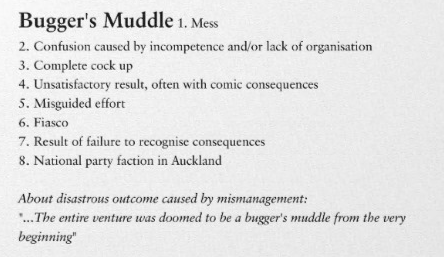
This is an update to my Britain Sleepwalks Out of The EU post of the 8 March 2016:
One thing becoming painfully obvious as this campaign progresses is that most British people have no idea how, as a country, we relate to the EU, and those who support leaving have the least idea of what they are actually wanting to leave:
I have heard people say that once we are out of the EU we will not need to contribute to NATO any more, but our membership of NATO is in no way linked to our membership of the EU.
This morning on the radio I heard a government minister say that outside the EU Britain would be safer because the European Court of Human Rights could no longer interfere with our laws. Intense dislike of the European Court of Human Rights is common among leave supporters. Unfortunately the European Court of Human Rights is not an EU institution and leaving the EU would have no effect on its ability to influence out laws. The European Court of Justice is an EU institution, but it does not make judgements on human rights.
I have even heard someone looking forward to the return of the British pound note – as if that will ever happen.
More seriously, if as a country, we vote to leave the EU, it is clear that many people will have little idea of what they have actually left. They may in fact be very disappointed that the things they most hate about Europe are still with them.
If we remain, it is equally clear we will need to improve our education about what the EU actually is and what it is not.
God help us all.

March 26, 2016
Author Cooperative
Since my last post I have been challenged as to what an author’s cooperative might look like.
Now this could, in my naivety, turn out to be the greatest work of fiction I have ever created, but here goes:
The biggest problem I face running a business as a lone indie author is not having time to write new book because I am too busy marketing the ones I have already written.
The second biggest problem I face is momentum: I simply cannot publish books quick enough to give the brand sufficient momentum to keep it in the public consciousness or more importantly, in the consciousness of my readers, who rapidly move on to other books and authors.
The third biggest problem is cost: To market successfully I need to pay annual fees which I am not guaranteed to earn back through book sales.
The fourth is ineffective marketing: Whilst I am happy to do the work, I really need an expert to tell me what to do. However, everyone requires an up-front fee, which doesn’t actually guarantee any sales and which I am not guaranteed to earn back in book sales.
So my ideal business model would be: a marketing expert who sets things up, tells me what to do, and who takes a percentage of each sale; other authors to help give a niche brand/imprint real momentum and keep costs down by splitting annual fees; less time spent marketing and more time spent writing new novels.
I may be wrong, but successful businesses on the internet seems to rotate around either around having loads of money to create a big brand, getting very lucky by having the right idea at the right time in the right place, or very narrowly targeting a small niche. As I have no money to create a big brand and believe in creating my own luck by working hard, I follow the niche model.
So this is my niche cooperative idea: Six authors, who all publish in the same niche, come together to market their books. Each author has had their work edited, proofread, formatted, and cover designed. In other words, they have created the best quality product they are capable of producing.
Central to the cooperative is the seventh member of the team: the marketing director. This is the person who gets a kick out of marketing and knows how to market books. They create a WordPress website for the niche/imprint from where all the author’s books are sold; they arrange the book tours, guest blog appearances, research content for the blog/website, organize the book launches, and pull together the marketing strategy for the niche/imprint. Basically, this person tells the authors what to do and what content/articles to produce. In return for this key role, they get 40% of every book sale; the authors get 10% each.
Here’s an infographic of what I envisage:
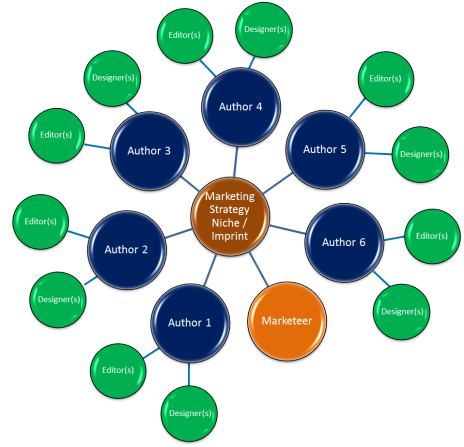
Why six authors? Apart from making the math easy, assuming each amateur/part-time author takes a year to produce a new book that means the niche/imprint has a new book launch every six to eight weeks – now that is the sort of momentum a brand really needs. Also, if Paypal is used as the payment platform they have a six person parallel payment limit (see below).
Each author would be free to still market their own books individually, however they like, (including titles offered through the cooperative) outside the cooperative and publish on Amazon, Smashwords, Kobo, B&N etc. Books in the cooperative arrangement would be sold purely from the niche/imprint website. Each author would publicize the niche/imprint website, the cooperative titles, and the cooperative website content/blog, via their chosen social media platforms in line with the marketing strategy devised by the Marketing director. Each author would take 10% of the profit from each ebook sold via the website, regardless of whose title it is, and the Marketing Director would take 40% of each sale.
There are of course two weak links in this business model:
The platform: A purchasing merchant services app would be required that could automatically divide up payments. If Paypal were used as the main payment system, they have two options: Parallel payments (maximum 6 recipients) and Chained payments (maximum 9 recipients), either option which do the job. To run such a system the cooperative would need to pay an annual fee for a WordPress.org website and pay for a Paypal Business Account.
Scaleability:
The fan/reader would have a steady supply of new titles in their niche of interest.
For the armature/part-time writers, scaleability through the cooperative comes from time freed up from marketing to write more book titles in a series.
For the marketeer, scaleability would come from building up expertise and expanding to form additional niche imprint cooperatives:
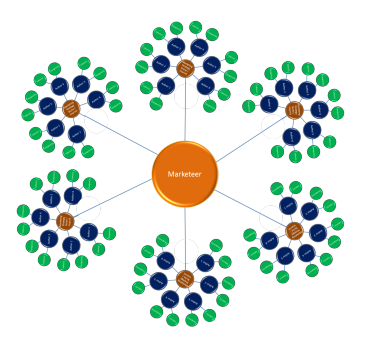
This business model is based on everyone putting in hard work to earn a living wage: it is not a ‘get rich quick’ scheme for anyone.
The best way to set up such a cooperative would be for the Marketeer to set everything up and pull each niche cooperative together. Will this business model make enough money for the Marketeer? Does this business model interest any Marketeers? Is there anyone out there who sees possibilities in such a business model? Is there anyone out there will to give it a go?

March 22, 2016
Indie Online Publishing Model
We all know what it takes to be a successful Indie author: A series of good online books, a large online following, regular interest articles on your blog, regular and frequent social media contact with your followers, a regular supply of new titles, a marketing funnel, plenty of time for marketing.
A regular supply of new titles and plenty of time for marketing are, of course, are the most difficult to deliver, because they conflict with each other: the time I need to use to write new novels in a series is also the time I need to use to market the existing ones.
The ideal for any author is to pay someone else to market for them. Unfortunately, the only people willing to do this require an up-front flat fee rather then being happy to take a percentage of the purchase price. Even it they were only willing to market the book for six months after publication, it would help me to produce the next novel in that time period.
I tried offering a 50/50 associate program to anyone willing to market my books, but after nine months there were still no takers, so I have scrapped the program. Perhaps I should have offered a 20/80 split.
I have recently come across an online publishing company called ‘Wizzards Keep Publishing’ which appears to offer exactly what I’m looking for, but I doubt their ability to achieve anything. Why?
Well, it is all a matter of scale. Let me explain.
WKP offer to market to their 50k twitter fans. As I have mentioned in previous articles, the stats point to any author needing a minimum of 50k followers on twitter, so that number for an online book marketing business is woefully small.
To succeed with a percentage marketing model, WKP would need 500k or 5M followers and a steady supply of new titles vetted by themselves for quality. More accurately, WKP would need an emai list of 50K people who trust them to deliver quality books in a specific genre and style.
To build an online business of this magnitude would require a huge amount of seed money – $500k, $2M, $5M? And the payback for such a business model would be a long way down the line. WKP has already changed hands once in its short lifespan and currently have a relaunch crowdfunding campaign to raise $5,000.
I wish them success, I really, really do. I just don’t see the scale here that I believe is required to succeed.
With my 10.6k twitter followers, my minimal automation, my slowly developing blog/website, I think I will struggle on trying to both market and write at the same time.
If there is an alternative way forward for me, I see it only in terms of forming a cooperative: like minded authors coming together to market their books so each can spend a little less time marketing and a little more time writing.
So, if you are writing fiction novels in the Dystopian/Steampunk genres, are committed to writing more books in those niche genres, have a reasonable following on social media and are committed to growing that even more, contact me and we will discuss cooperation.
Nick.

March 11, 2016
Sucking the Soul from Writers
A few weeks ago I was approached by someone on
Twitter asking if I wanted to contribute to an ebook where writers write about their marketing experiences and give tips on how to market books better. All the contributors would then promote the ebook and take a cut of the profits.
On the face of it, this sounds like a good business model: lots of people contributing to something that lots of people then market and everyon
e shares in the profits. And it’s scalable too, because you can produce a whole series on ever aspect of writing – maybe even branch out into comics and film. The possibilities are endless.
At first I was flattered that I had been asked. Then reality struck: this is just another way for writers to make money from fellow writers, or even worse, wannabe writers. This is jumping on the back of the gold rush and making profit by sucking the soul out of those searching for creative gold.
Let me tell you that making a living out of novel writing is hard – anyone who says otherwise is trying to sell you something. Call me stupid, and the person who offered me this opportunity probably will, but I prefer to make my living out of actually crafting novels. Which is why all the writing tips and ‘how to articles’ on this site are free.
 It seems that anyone who completes the first draft of a book can call themselves an expert, and write an ebook to sell to other would be writers. In my humble opinion, most of these books are not worth the money you pay for them. There are a few brilliant exceptions, but only a handful. A writing tutor can not only get to the heart of the craft, but they can inspire others. The good ones invariably give lots of advice away for free to new and wannabe writers, because they know how hard it is.
It seems that anyone who completes the first draft of a book can call themselves an expert, and write an ebook to sell to other would be writers. In my humble opinion, most of these books are not worth the money you pay for them. There are a few brilliant exceptions, but only a handful. A writing tutor can not only get to the heart of the craft, but they can inspire others. The good ones invariably give lots of advice away for free to new and wannabe writers, because they know how hard it is.
My advice? Join a library, read what you can for free to get you started. Surf the internet, there is loads of valuable free advice available from expert writers. If you have a specific problem with your writing, save your money for a writing cours,e where you can get specific one-to-one advice from a tutor who reads your work.
Sorry, this turned into a bit of a rant. Nick
Nick

March 8, 2016
Britain Sleep Walks Out of Europe
I don’t normally talk politics on this blog, but I feel compelled to comment about the forthcoming poll on whether Britain should remain in the European Union.
It is really difficult to filter out the issues that really matter, because the headline issues, pushed by either side of the debate, are largely irrelevant:
Migration will change little if we leave the EU, any decent trade deal is bound to require the free movement of EU citizens. And everyone else is coming from parts of the world which we have helped to destabilize with our military action. Even those coming from sub-sahara Africa would traditionally have stopped in Libya before we helped destabilize it – now they carry on to Europe. As we bear some responsibility for the mess their nations are in, we would still have to take them in.
The economy would undoubtedly suffer in the short term, both from trade tariffs and uncertainty while new trade deals are hammered out. In the longer term we would cope: there would be no option, so we would make it work. Would we be more prosperous without the drag anchor of Europe or less well off due to limits on free trade with Europe?
No one knows. Probably the effects would be about equal out in the long term.
Some things will stay the same no matter what decision is made:
Defence will still be tied up with Europe because we will still be part of NATO.
Diplomacy will also largely be tied in with NATO and therefore Europe.
If we wish to still trade with the EU, we will still be bound by their red tape and bureaucracy.
Some things though will suffer:
Research and development is a big one. Without any natural resources to speak of, Britain is dependent on trade. These days that amounts to trade in money, trade in financial services, and technological advancement. Without massive investment in R&D Britain will fall behind.
However, I hear no one talking about this or putting forward a plan for R&D in a non EU Britain.
There could be opportunities:
Data is the natural resource of the future, something Britain can really call their own if we get ahead of the curve, especially in banking and financial services, but also in other areas too. With a culture of innovation and entrepreneurial start-ups, Britain ought to be able to sprint ahead without the constraints of the EU.
Again, I hear no one talking about any of this, no plans for the future.
The one thing that could sway me to vote to leaved the EU:
If someone puts forward a vision for the future for Britain that is really positive, dynamic, and radical, that addresses the issues I have mentioned above, but is not currently possible because of European constraints, I could be swayed.
I am not hopeful.
A bleak campaign:
I see no groundswell of political change, no desire for a new economic direction, no appetite for radical reform, no compelling vision of a future Britain. Nothing, in fact, except a desire to be free of European interference – which will never happen whichever way the vote goes.
If the best argument for leaving the EU is pure frustration, we should stay in and change it from the inside.
In fact, given that all the opposition parties, except UKIP, and half the government, are against leaving the EU it is difficult to see who could possibly put forward a realistic alternative vision for Britain without tearing the ruling Conservative party to shreds. Except, maybe, Boris Johnson.
It really made me think when Boris opted to joint the out campaign, but in reality he has contributed very little. He is almost certainly playing party politics: If the Out campaign wins, he will probably be Britain’s next Prime Minister – the person who will have to navigate extracting Britain from the EU; if the In camp wins, then he has done himself no political harm and may have made some useful allies. All Boris has done so far is sit on the sidelines and made the odd semantic observation. His heart is not really in it.
If Boris really believes in a better Britain without the EU, he is the one person who could, and should, present a new vision for Britain.
But he won’t.

March 4, 2016
Book sale
In the spirit of continual experimentation, to find the best price for my books I have just reduced the price of all my books on Amazon.
Gaia’s Brood is now $1.99
Helium3 are each $0.99 each
Helium3 Box Set is $1.60 – a HUGE saving of $0.38 on the cost of purchasing each book separately.
So if you have been thinking about buying any of these books, now is the time to purchase.
Nick




